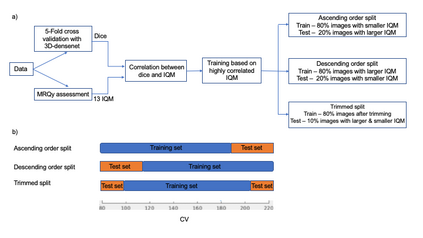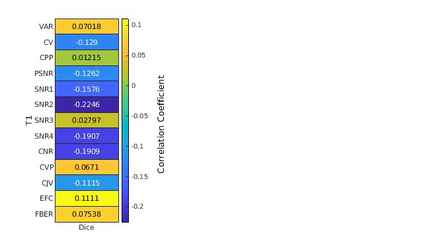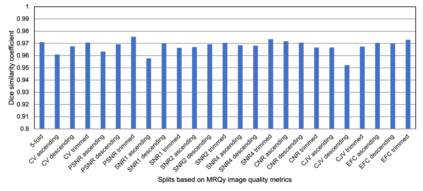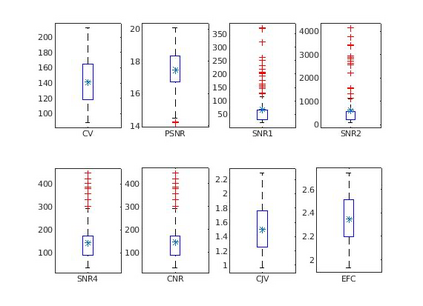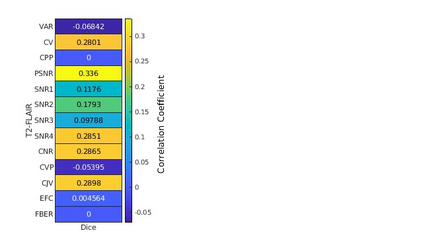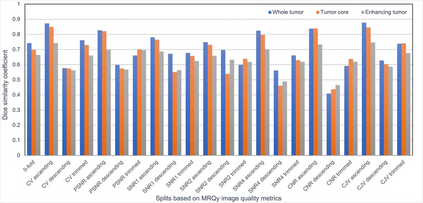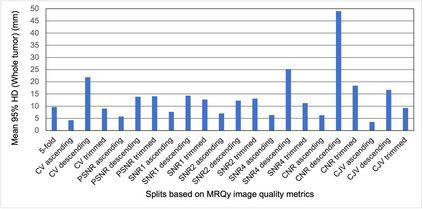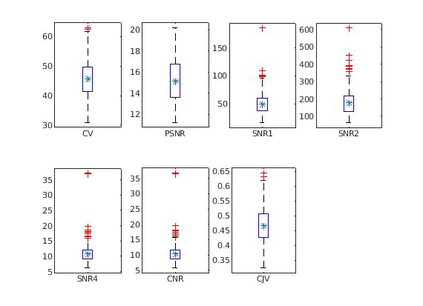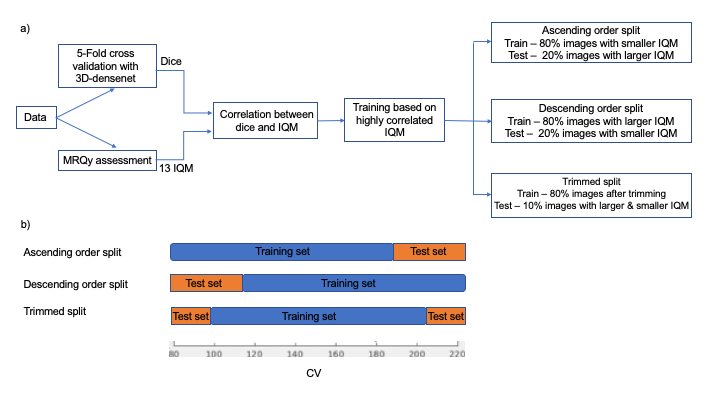Deep neural networks with multilevel connections process input data in complex ways to learn the information.A networks learning efficiency depends not only on the complex neural network architecture but also on the input training images.Medical image segmentation with deep neural networks for skull stripping or tumor segmentation from magnetic resonance images enables learning both global and local features of the images.Though medical images are collected in a controlled environment,there may be artifacts or equipment based variance that cause inherent bias in the input set.In this study, we investigated the correlation between the image quality metrics of MR images with the neural network segmentation accuracy.For that we have used the 3D DenseNet architecture and let the network trained on the same input but applying different methodologies to select the training data set based on the IQM values.The difference in the segmentation accuracy between models based on the random training inputs with IQM based training inputs shed light on the role of image quality metrics on segmentation accuracy.By running the image quality metrics to choose the training inputs,further we may tune the learning efficiency of the network and the segmentation accuracy.
翻译:深度神经网络, 以复杂的方式学习信息。 a 网络学习效率不仅取决于复杂的神经网络结构, 也取决于输入培训图像。 与深神经网络进行医学图像分割, 用于从磁共振图像中剥离头骨或肿瘤分解, 既可以学习图像的全球和地方特征。 虽然医疗图像是在受控制的环境中收集的, 但可能存在基于差异的人工制品或设备, 导致输入数据集中固有的偏差。 在这次研究中, 我们调查了MR图像的图像质量度量与神经网络分解准确性之间的相互关系。 因为我们已经使用 3D DenseNet 结构, 并且让网络接受同样的输入培训, 但使用不同的方法选择基于 IQM 值的培训数据集。 基于IQM 培训投入的随机培训模型的分解准确性差异, 说明了图像质量测量在分解准确性中的作用。 通过使用图像质量度来选择培训输入值, 我们还可以调整网络的学习效率和分解准确性。

